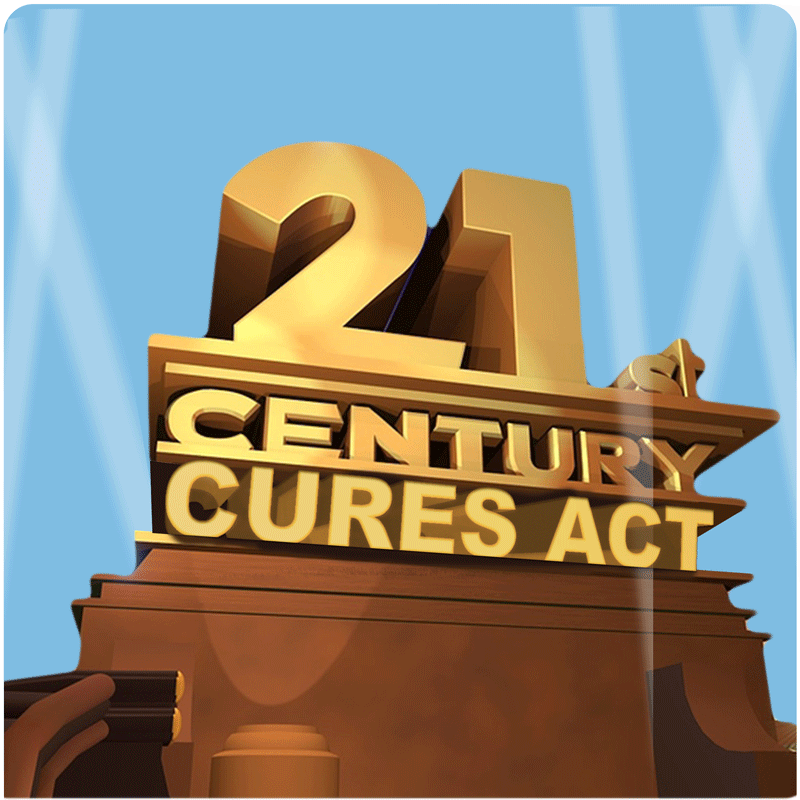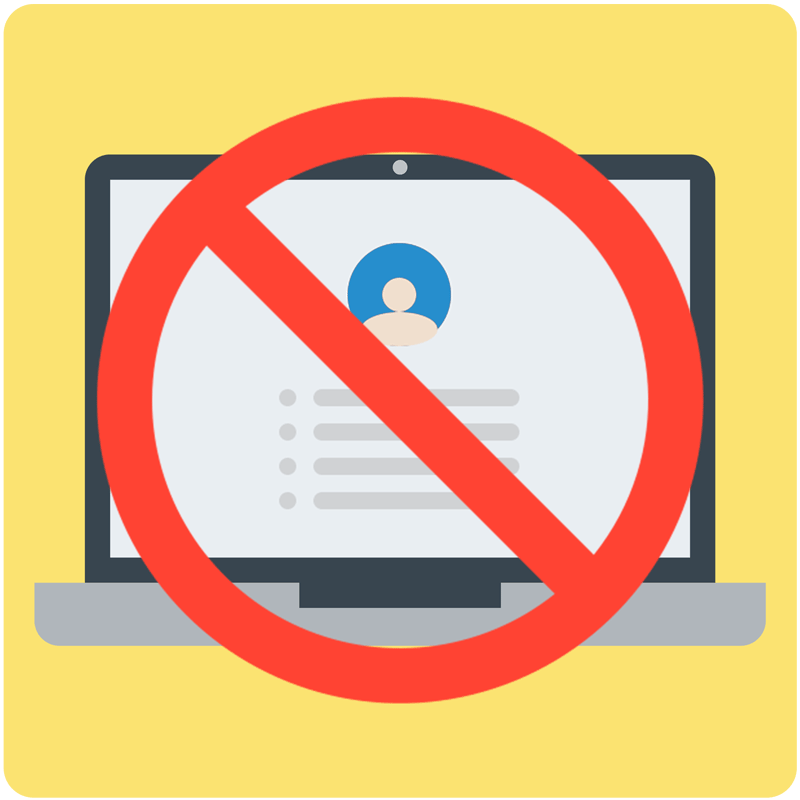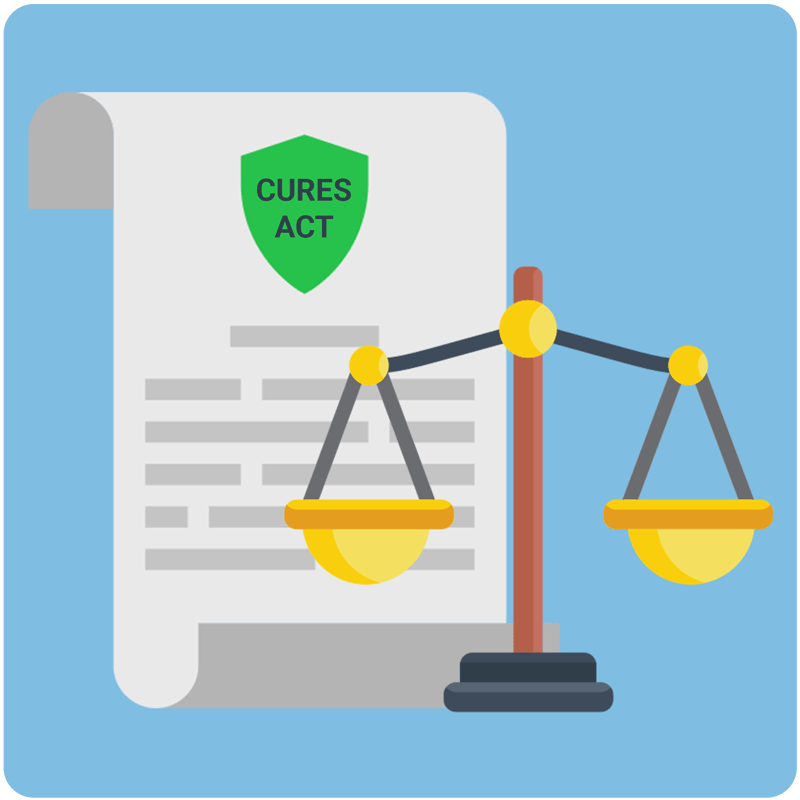April 2, 2021 Roll back the curtains and cue the drumroll because it’s the moment we’ve all been waiting for… the 21st Century Cures Act is finally making it’s big debut. The newest legislation directed by the Office of the National Coordinator for Healthcare Technology (ONC) is officially effective on April 5, bringing several advancements to healthcare and technology that are sure to live up to the hype. So if you’re a healthcare provider and you use any sort of healthcare application, we hope you have your popcorn ready because this one’s for you! So let’s take it from the top – what even is the 21st Century Cures Act? The HITECH Act and more recently the HIPAA Safe Harbor Law have already set the stage, providing legislative requirements that put technology and healthcare in the spotlight. But the Cures Act goes one step further as the sequel to these health IT related laws, outlining how practices and healthcare app developers can overcome the balancing act of giving patients easy access to their electronic protected health information (ePHI) while still maintaining data privacy and security. Ultimately, patients play the starring role in the Cures Act requirements. Getting the red carpet treatment to access their health records in the ways that they want to receive it – whether that be an app, another EHR, or similar electronic system. Having this ‘patients-first’ focus is at the center of HHS’s work toward a value-based health care system and enables: How does it impact me? This star-studded set of legislation features a ton of improvements for healthcare and technology that you definitely don’t want to miss. So now what?! Wondering how this new law changes HIPAA requirements? Spoiler alert – it doesn’t. All of those HIPAA requirements surrounding data privacy and security, proper disclosure, and patient record access requests are still featured within the new legislation and should not be forgotten. Having a complete HIPAA compliance program in place is the groundwork for protecting patient data, and underscores what the Cures Act entails. Now, if recent enforcement efforts haven’t given you enough of a preview, the government is a tough critic for noncompliance. So much so that in the latest round of HIPAA audit results, 94% of covered entities’ compliance efforts were rated as a total flop. So having a complete compliance program that meets all requirements (including the new ones we just covered) is key to keeping your practice out of the limelight of enforcement and avoiding an Oscar-worthy HIPAA fine.
What Does ‘Information Blocking’ Mean?
October 15, 2020 If you’re at all familiar with the 21st Century Cures Act, you may have heard the term ‘information blocking’ tossed around. Even if you’re not, you may be familiar with the ongoing healthcare battle to prevent information blocking and more effectively share patient information. If you’re not familiar with any of these things…well…keep reading anyways, if you’re an independent practice we promise this is going to be increasingly important information to know. A major goal of the Cures Act is to break down the barriers currently erected to interfere with, prevent, or discourage the access, exchange, or use of electronic Protected Health Information (ePHI) within the healthcare industry – otherwise known as information blocking. HIPAA outlines the specific ways information can be shared (and these rules still apply) but the statement of “sorry we can’t share that information because of HIPAA” is often applied incorrectly, and part of what the Cures Act hopes to correct. Deliberately blocking information that should be shared with patients and other appropriate covered entities, such as with Health Information Exchanges (HIE’s), can prevent or delay proper treatment and ultimately reduces the effectiveness of patient care. Before the Cures Act rules go into effect (November 2, 2020), organizations must reevaluate or remove any barriers currently in place that constitute information blocking. Not 100% what that really means? You aren’t alone, which is why the Office of the National Coordinator for Healthcare Technology (ONC) has created a helpful cheat sheet for what does and does not qualify as information blocking. There are some exceptions to what falls under the “information blocking” umbrella, including: All of these exceptions are only permissible provided certain conditions are met. In general, think of information blocking as refusing to share data even when there is no reason not to – i.e., none of these exceptions or regular privacy concerns apply. Where it gets tricky is when information sharing might – though the situation makes it unclear – violate HIPAA compliance regulations (really violate them, not just as an excuse). It’s always helpful to ask the experts in these circumstances – such as your HIPAA compliance program provider (*cough cough*).
The 21st Century Cures Act: What Your Practice Needs to Know
September 24, 2020 Technology is increasingly at the heart of healthcare, and navigating all this new technology, including providing the right electronic access to protected health information (PHI), to the right people, can be headache-inducing. The cure? The recently passed 21st Century Cures Act (see what we did there?) which provides new requirements and guidance around the exchange, access, and use of electronic protected health information (ePHI). The Cures Act’s requirements are set to go into effect on November 2, 2020 – read on for what your practice needs to know before then. What is the Cures Act, anyway? A complement to existing HIPAA laws, the Cures Act is designed to further outline how practices and healthcare app providers should be navigating the balance between providing patients access to their ePHI while maintaining their data privacy and security. In short, it provides patients clear access to their data – in the ways they choose to receive it – while outlining clear requirements for providers and app developers to promote patient access and prevent information blocking all with the right technical safeguards to protect health information. So what’s changed? The Cures Act does make some specific changes that may affect your healthcare operations, including: What do I need to do about it? The final rule establishes additional policies that supplement existing HIPAA programs. To best comply with these new requirements, your practice should: The biggest takeaway from all this? HIPAA. Doesn’t. Change. All the same safeguards and policies you have in place still apply under the Cures Act – they are just supplemented by new ways to better use patient data and prevent information blocking. These new standards of innovation mean that patients can soon access their medical records on hand (literally) through their app of choice, and will continue to pave the way for HIPAA to interact with advancing technology. You can read more on the Cures Act by visiting the ONC Cures Act website, or reading through the full Cures Act final rule text (if you do, we would be seriously impressed – but before you read all 320 pages, know that the Abyde team is here to help translate all this legal-ese into something that actually makes, well, sense.)


